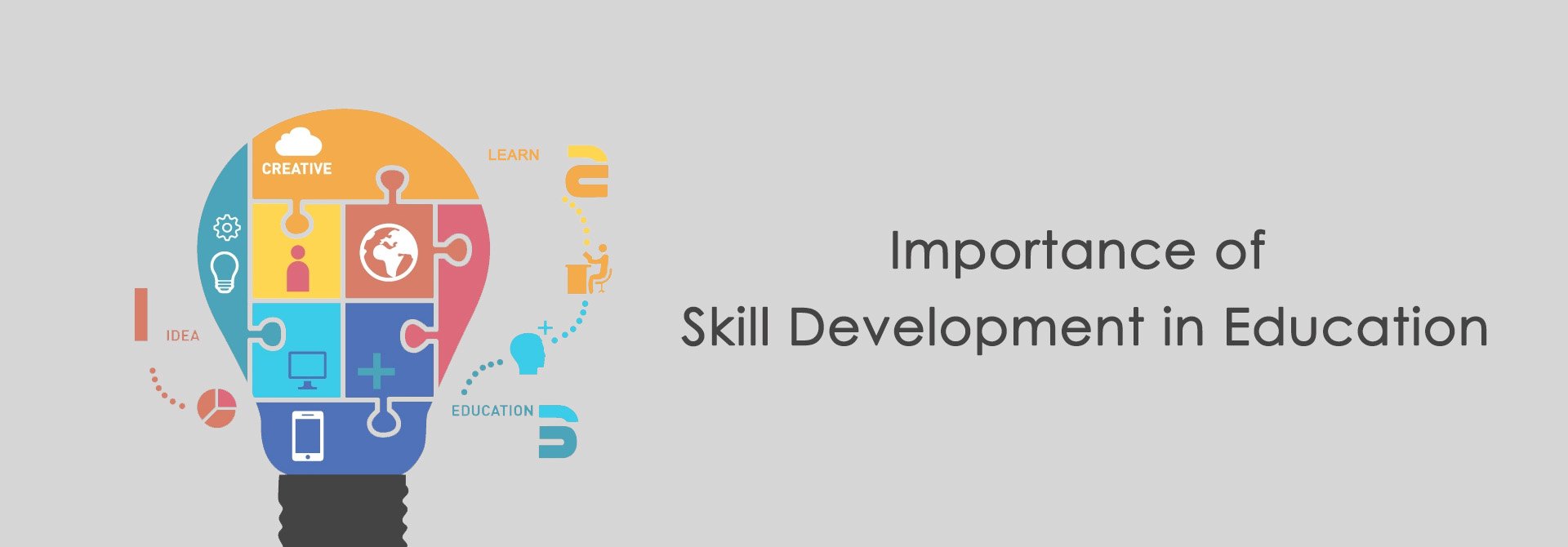The Importance of Skill Development in Education
Table of Contents
- Introduction
- Bridging the Gap Between Theory and Practice
- Enhancing Employability
- Promoting Lifelong Learning
- Fostering Innovation and Creativity
- Building Confidence and Independence
- Addressing the Skills Gap
- Integrating Technology in Skill Development
- The Role of Educators in Skill Development
- Conclusion: A Call to Action
Introduction
In today's rapidly evolving world, the importance of skill development in education cannot be overstated. As technology advances and industries transform, the demand for a skilled workforce has never been greater. Traditional education models, which focus heavily on theoretical knowledge, are no longer sufficient. To prepare students for the future, educational systems must prioritize skill development, ensuring that learners acquire the practical abilities necessary to thrive in the modern economy.
Bridging the Gap Between Theory and Practice
One of the primary reasons for emphasizing the importance of skill development in education is to bridge the gap between theoretical knowledge and practical application. While theoretical knowledge provides a foundation, it is the practical skills that enable individuals to apply what they have learned in real-world situations. For instance, a student who has studied engineering theories will only become a competent engineer if they can effectively apply those theories in designing and building structures. Therefore, integrating skill development into the curriculum ensures that students are not only knowledgeable but also capable of executing tasks efficiently.
Enhancing Employability
The job market today is highly competitive, and employers are increasingly looking for candidates who possess a mix of technical and soft skills. The importance of skill development in education is highlighted by the fact that many graduates struggle to find employment despite having impressive academic qualifications. This disparity often arises because traditional education systems do not adequately prepare students for the demands of the workplace. By incorporating skill development into educational programs, institutions can enhance the employability of their graduates, equipping them with the competencies required by employers.
Promoting Lifelong Learning
The concept of lifelong learning is becoming increasingly important in the 21st century. As industries evolve and new technologies emerge, individuals must continuously update their skills to remain relevant in the workforce. The importance of skill development in education extends beyond the classroom, fostering a culture of continuous improvement and adaptability. By instilling the value of skill development early on, educational institutions can encourage students to embrace lifelong learning, ensuring that they remain agile and capable of navigating the changing job market.
Fostering Innovation and Creativity
Innovation and creativity are crucial for driving progress in any field. The importance of skill development in education is particularly evident in its ability to foster these attributes. When students are encouraged to develop skills such as critical thinking, problem-solving, and collaboration, they are more likely to come up with innovative solutions and creative ideas. These skills are essential for addressing complex challenges and driving advancements in technology, science, and other disciplines. By prioritizing skill development, educational institutions can cultivate a generation of thinkers and doers who are equipped to make significant contributions to society.
Building Confidence and Independence
Skill development plays a crucial role in building students' confidence and independence. When learners acquire new skills, they gain a sense of accomplishment and self-efficacy. This boost in confidence can have a positive impact on their overall academic performance and personal growth. Moreover, developing practical skills empowers students to take initiative and solve problems independently, preparing them for the challenges they will face in their careers and daily lives. The importance of skill development in education lies in its ability to create self-assured individuals who are ready to take on the world.
Addressing the Skills Gap
The skills gap is a growing concern in many industries, where there is a mismatch between the skills that employers need and those that job seekers possess. The importance of skill development in education is underscored by the need to address this gap. By aligning educational programs with the demands of the job market, institutions can ensure that students graduate with the skills that are in high demand. This alignment not only benefits employers but also enhances the career prospects of graduates, reducing unemployment rates and driving economic growth.
Integrating Technology in Skill Development
Incorporating technology into education is another critical aspect of emphasizing the importance of skill development. With the rise of digital tools and online learning platforms, students have unprecedented access to resources that can aid in skill acquisition. Educational institutions can leverage technology to create interactive and engaging learning experiences, allowing students to practice and refine their skills in a virtual environment. Additionally, technology can facilitate personalized learning, enabling students to progress at their own pace and focus on areas where they need improvement.
The Role of Educators in Skill Development
Educators play a pivotal role in highlighting the importance of skill development in education. Teachers and instructors must be equipped with the knowledge and tools to effectively teach and assess practical skills. This requires ongoing professional development and training to ensure that educators are up-to-date with the latest teaching methodologies and industry trends. By fostering a supportive and dynamic learning environment, educators can inspire students to take an active role in their skill development journey.
Conclusion: A Call to Action
The importance of skill development in education is clear. To prepare students for the future, educational systems must evolve to prioritize the acquisition of practical skills alongside theoretical knowledge. By doing so, institutions can enhance employability, promote lifelong learning, foster innovation, build confidence, address the skills gap, and integrate technology into learning. Educators, policymakers, and stakeholders must collaborate to create a holistic education model that emphasizes the importance of skill development, ensuring that learners are well-equipped to navigate the complexities of the modern world.
The journey towards integrating skill development in education requires a concerted effort from all parties involved. As we move forward, let us recognize the critical role that skill development plays in shaping the future and take proactive steps to make it a cornerstone of our educational systems. The importance of skill development in education cannot be overlooked; it is the key to unlocking the potential of the next generation and driving progress in an ever-changing world.

.webp)








0 Comments